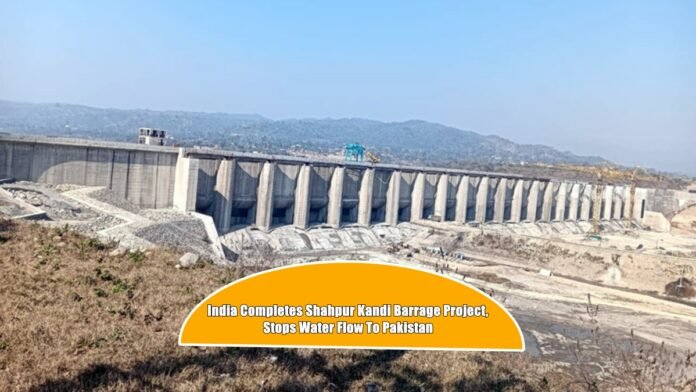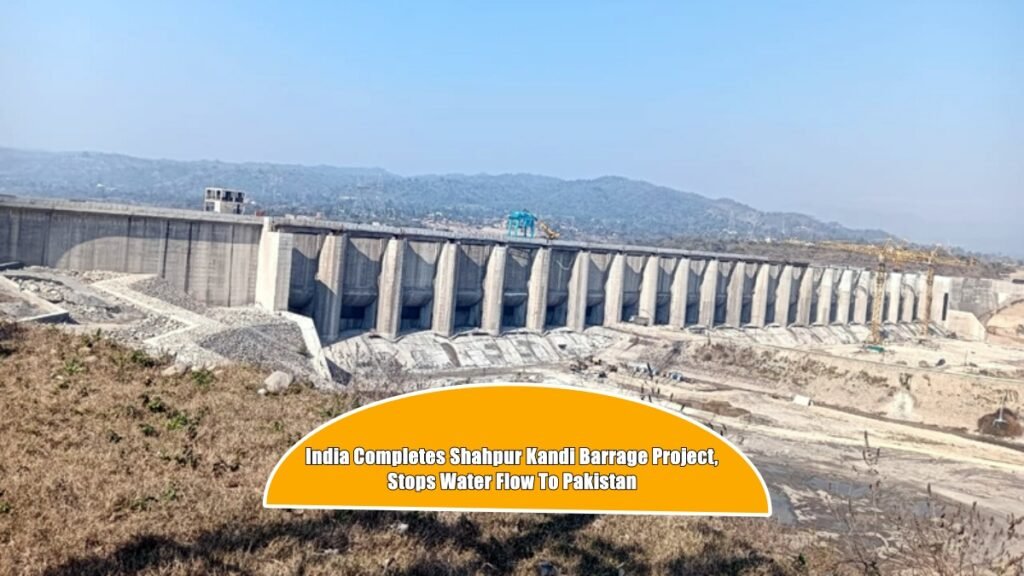
New Delhi: India has achieved a major feat in its water management by completing the Shahpur Kandi Barrage project, which will stop the flow of Ravi River water to Pakistan. This project, which was delayed for decades due to various disputes, will also benefit the states of Punjab Jammu, and Kashmir by providing irrigation and power generation. Pakistan, on the other hand, will face a water crisis as it loses access to one of its main sources of water.
Background
The Ravi River is one of the six rivers that form the Indus River system, which is shared by India and Pakistan. The Indus Water Treaty, signed in 1960 under the World Bank’s supervision, allocated the waters of the three western rivers (Indus, Jhelum, and Chenab) to Pakistan and the three eastern rivers (Ravi, Beas, and Sutlej) to India. However, India was allowed to use the water of the western rivers for non-consumptive purposes such as irrigation, storage, and power generation, subject to certain conditions.
Pakistan, which is dependent on the Indus River system for its water needs, has often accused India of violating the treaty and reducing its water supply. India, on the other hand, has maintained that it has abided by the treaty and has the right to utilize its share of water. India has also accused Pakistan of sponsoring terrorism and hostility against it, which has strained the bilateral relations between the two countries.
Project Details
The Shahpur Kandi Barrage project is located on the Ravi River in the Pathankot district of Punjab, about 11 km downstream of the Ranjit Sagar Dam, which was completed in 2001. The project consists of a 55.5 m high and 545 m long barrage, two powerhouses with a total capacity of 206 MW, and a network of canals for irrigation. The project will provide irrigation to about 5 lakh hectares of land in Punjab and Jammu and Kashmir, and generate about 941 million units of electricity annually.
The project was conceived in 1960, after the signing of the Indus Water Treaty, to stop the wastage of water flowing to Pakistan. The foundation stone of the project was laid by former Prime Minister Indira Gandhi in 1982, and it was expected to be completed by 1998. However, the project faced several hurdles due to disputes between Punjab and Jammu and Kashmir over the sharing of costs, benefits, and water. The project remained in limbo for many years, until the central government intervened in 2018 and resolved the issues between the two states. The project was then fast-tracked and completed in 2024.

Implications
The completion of the Shahpur Kandi Barrage project will have significant implications for both India and Pakistan. For India, the project will enhance its water security, agricultural productivity, and power generation. It will also enable India to fully utilize its share of water under the Indus Water Treaty, and assert its sovereignty over its natural resources. For Pakistan, the project will reduce its water availability, especially during the dry season, and aggravate its water scarcity. It will also affect its agricultural output and hydropower generation, and increase its dependence on groundwater. The project may also increase the tensions between the two countries over the water issue, and pose a challenge to the implementation of the Indus Water Treaty.



















































